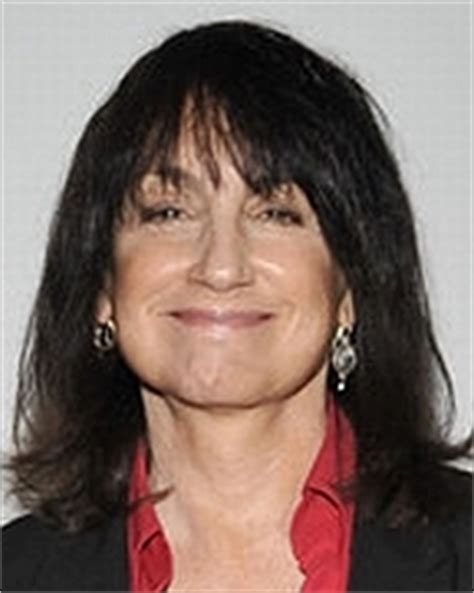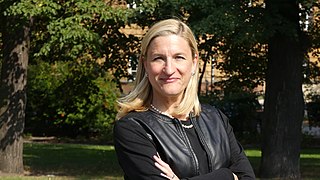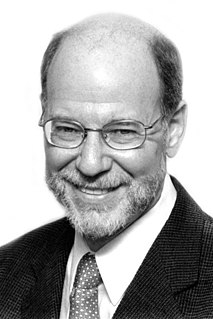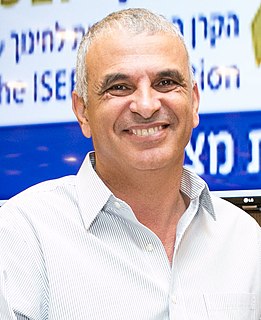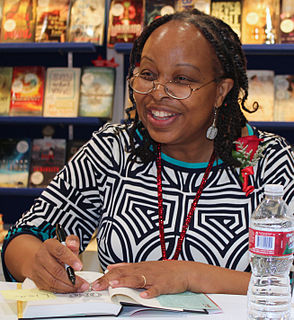A Quote by Merrill Markoe
More than any other personality trait, my mother seemed to be ruled by anger and sadness. She seemed to hate being a mother. Watching her unhappiness as I grew up made me conclude that the answer was to try and be as unemotional as I could, which many therapists have taught me is a bad idea. It also made me want to avoid marriage and having children.
Quote Topics
Related Quotes
There are no words for how much I will miss her, but I try to kiss her so that she'll know. I try to kiss her to tell her the whole story of my love, the way I dreamed of her when she was dead, the way that every other girl seemed like a mirror that showed me her face. The way my skin ached for her. The way that kissing her made me feel like I was drowning and like I was being saved all at the same time. I hope she can taste all that, bittersweet, on my tongue.
One day when I was fourteen, I told Charlie that I hated Mother. “Don’t hate her, Jo,” he told me. “Feel sorry for her. She’s not near as smart as you. She wasn’t born with your compass, so she wanders around, bumping into all sorts of walls. That’s sad.” I understood what he meant, and it made me see Mother differently. But wasn’t there some sort of rule that said parents had to be smarter than their kids? It didn’t seem fair.
I admire Joyce Maynard a lot, specifically her memoir "At Home in the World." Her writing is beautiful and fascinating and seemed to give me validation to the idea that I could write validly in earnest about my life with (my) very feminine point of view, and also that I could unapologetically explore the bad traits of my character (which I find to be more interesting to explore than the good traits), as well as explore other concepts that interest me like private vs public personas, age gap relationships, etc.
I had always assumed we had an unspoken understanding about these things: that she didn't really mean I was a failure, and I really meant I would try to respect her opinions more. But listening to Auntie Lin tonight reminds me once agian: My mother and I never really understood one another. We translated each other's meanings and I seemed to hear less than what was said, while my mother heard more. No doubt she told Auntie Lin I was going back to school to get a doctorate.
...fact was she knew more about them than she knew about herself, having never had the map to discover what she was like. Could she sing? (Was it nice to hear when she did?) Was she pretty? Was she a good friend? Could she have been a loving mother? A faithful wife? Have I got a sister and does she favor me? If my mother knew me would she like me? (140)
My brother Kobi made my mother very proud when he was elected deputy mayor of Jerusalem. My sister made her proud when she got an advanced university degree, finishing cum laude, and I could not have given my mother a better present than having her come to the Knesset to witness my swearing-in as a minister.
My second mother is my maternal grandmother. Her name is Thelma. She also gave me a very powerful medicine; she made sure that I knew my role as a young lady and as someone with moral structures and principles. She taught me that if I was going to be involved with anything, whether it be spirituality, music, or some skill, that I have to practice.
One thing I did have under my belt was, my mother lost her mother when she was 11. She mourned her mother her whole life and made my grandmother seem present even though I never met her. I couldn't imagine how my mom could go on but she did, she took care of us, she worked two jobs and had four children. She was such a good example of how to conduct oneself in a time of grief. When I lost my husband, I tried to model myself as much as I could on her.
I'm very objective about what I want to have happen to my protagonists and where that has to come from. On one hand, it does help me that I had a mother who might have taken the last dollar and bought a pack of cigarettes or something, but I also had a mother who exposed me to art, music, other religions, different foods. My mother was very adventurous in her own way, so she fed the part of me that was going to grow up to be a writer. But there's always, too, the opposite response that helps me to create.
Nature seemed to me benign and good; I thought she loved me, outcast as I was; and I, who from man could anticipate only mistrust, rejection, insult, clung to her with filial fondness. To-night at least, I would be her guest-as I was her child; my mother would lodge me without money and without price.
